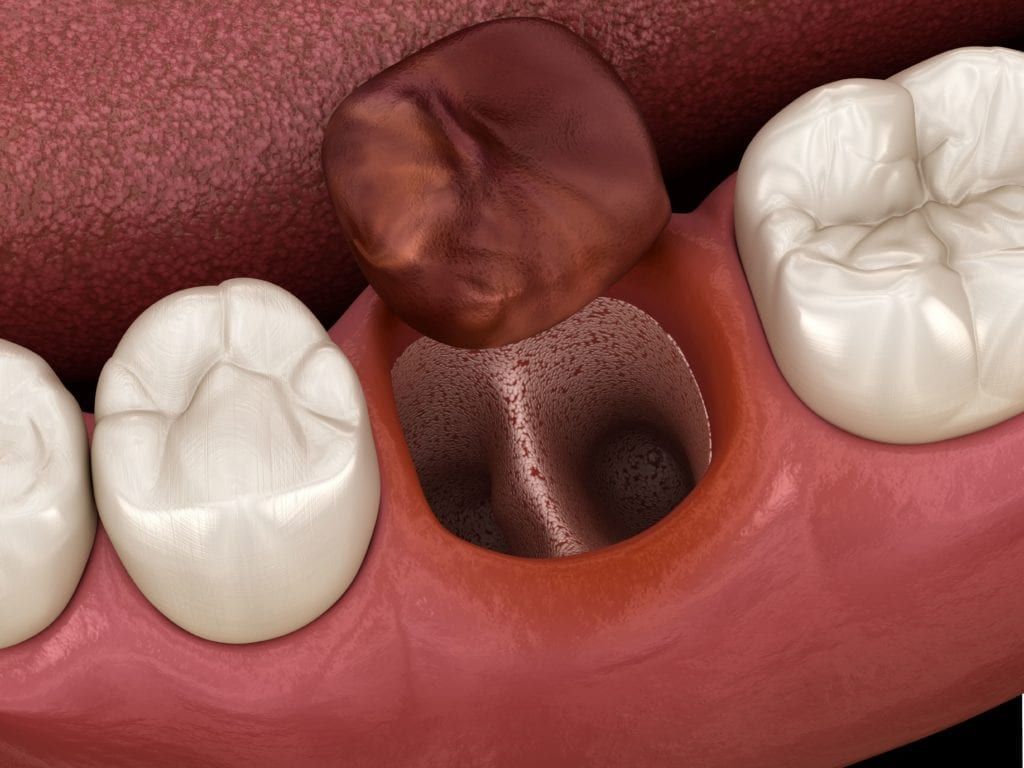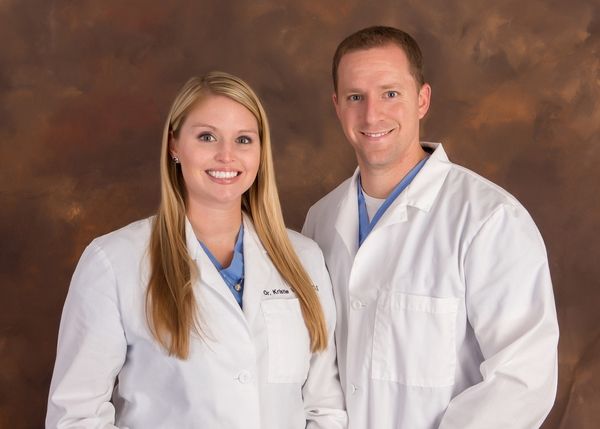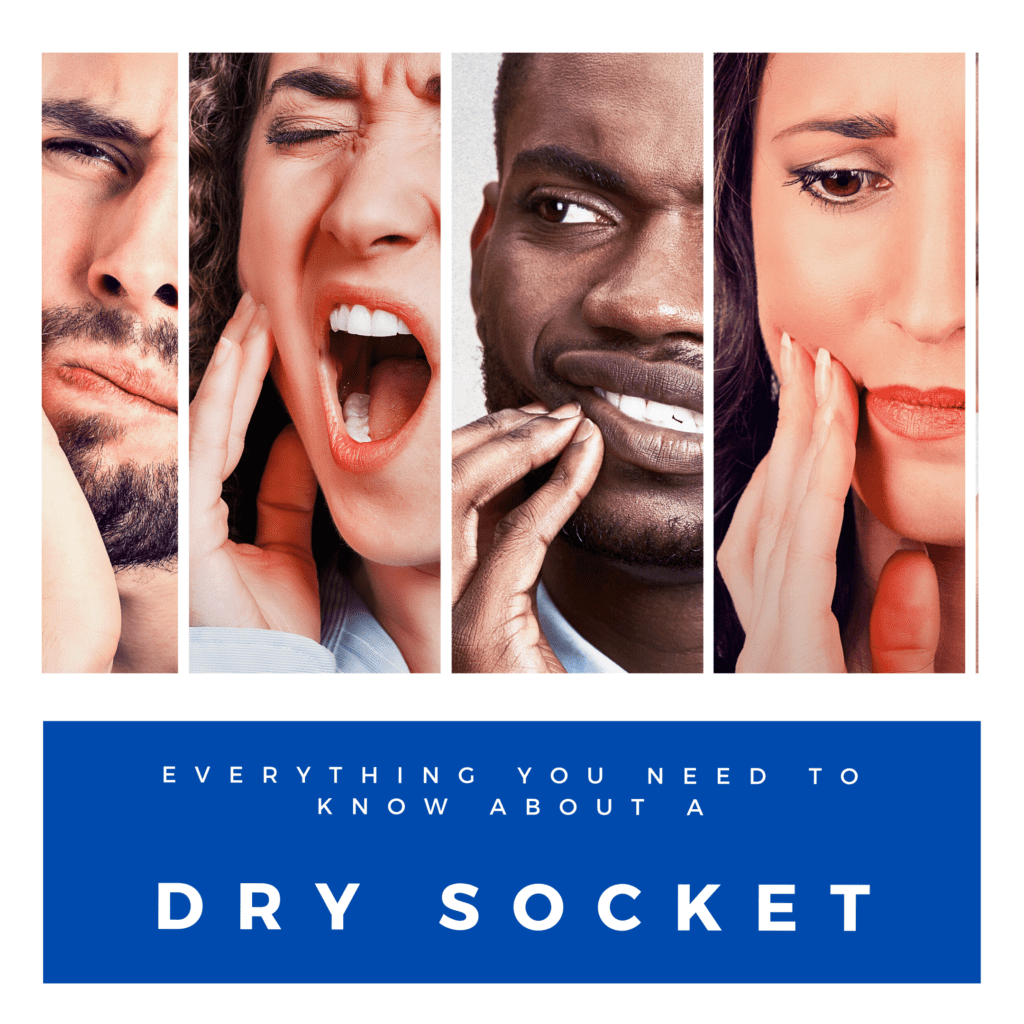Tooth extractions are dental procedures that are performed to remove problematic teeth from the mouth. Teeth can be extracted for a number of reasons, such as severe damage or decay, but the most common type of extraction are wisdom teeth extractions. Regardless of the reasoning behind a tooth extraction, most extractions can be performed comfortably and without complications. In some cases, however, a complication known as a dry socket can occur. Dry sockets are the most common tooth extraction complication, although they are usually short lived.

A dry socket, known by dentists as alveolar osteitis, is the term used to describe an empty tooth socket with no protective blood clot. Normally, when a tooth is extracted the body forms a blood clot to protect the bone, tissues, and nerve endings in the socket. In some cases, however, this clot may simply not form at all or it may become dislodged. In both situations, the result is a dry socket.
Since a dry socket essentially means that the underlying tissues, bone, and nerve endings are now exposed, the primary symptom associated with a dry socket is pain caused by the inflammation of these structures. For many, the pain is felt deep within the jaw and is described as throbbing. For some, the pain can radiate up to the ears, eyes, temples, and even the neck. Pain caused by a dry socket does not always respond to over the counter pain medications, although they may help to take off the edge.
Some people assume this pain is simply the result of a tooth extraction, but this is not the case. A tooth extraction may cause mild discomfort, but this discomfort should be able to be managed with over the counter pain medications and should never be excessive. Conversely, the pain of a dry socket is much more severe. Simply stated, if you are in a significant amount of pain after a tooth extraction, you may have a dry socket and you should call your dentist.
Upon hearing your symptoms, most dentists will have you come in for an appointment as soon as possible. They will first examine the extraction site to rule out infection and diagnose a dry socket. The empty socket will then be cleaned by being flushed with water. After the socket is cleaned, it will be packed with pain medications and gauze. This is an effective treatment that relieves pain almost instantly and helps to protect the exposed tissues.

In order to prevent a dry socket, you will want to follow any postoperative guidelines provided by your dentist. These guidelines provide advice on the correct foods to eat after an extraction, as well as how to use salt water rinses to clean the extraction site without dislodging the clot. They also provide information on a few things you can do to reduce the risk of developing a dry socket.
Unfortunately, there is no guarantee that you won’t get a dry socket and some people may be at an increased risk. You may be at an increased risk of developing a dry socket if:
- You smoke (tobacco delays healing)
- Are a woman, especially those on oral contraceptives (estrogen interferes with healing)
- Have had a dry socket in the past
- Are having a surgical extraction to remove impacted wisdom teeth
- Are having a tooth removed from the lower jaw
- Are having a molar extracted

Dr. Chris Vinson and Dr. Kristie Vinson attended the College of Dentistry at The University of Oklahoma. Dr. Chris Vinson has earned a fellowship from the Misch International Implant Institute and a fellowship in International Congress of Oral Implantology. He is also certified to administer Oral and IV sedation to his patients through The Montefiore College of Medicine in New York and is Teeth-Express and Invisalign certified. Dr. Kristie Vinson is trained in sedation dentistry, Botox, and dermal fillers. She received a Fellowship from the Misch International Implant Institute and the Fellowship in International Congress of Oral Implantology. She is also Teeth-Express and Invisalign Certified.




